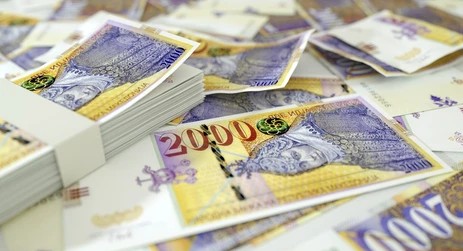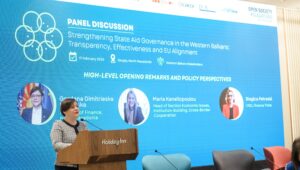
The Government has adopted and submitted to Parliament the Proposal for Amending and Supplementing the Budget of the Republic of North Macedonia for 2025. According to the proposal, tax revenues remain at nearly the same level as initially planned, while expenditures increase by the amount of higher non-tax revenues, keeping the total projected budget deficit unchanged.
Finance Think maintains the position expressed in our FT Comment No. 40 on the Draft Budget of the Republic of North Macedonia for 2025, dated November 19, 2024, that the projected growth of tax revenues of 12.6%, i.e. more than double the sum of the projected real GDP growth rate and the (revised) inflation rate, is ambitious to achieve. This concern is also reflected in the realization of tax revenues in the first five months of 2025, which stands at 37.6% (compared to the proportional realization rate of 41.7%), similar to the performance of VAT revenues (36.9%), excises (34.4%), and import duties (36.6%), all of which directly reflect the pulse of the economy.
Nevertheless, it is worth noting that non-tax revenues increased by 4.2 billion denars, largely achieved through the financial result of the National Bank, enabled by law amendments earlier in 2025, which allowed 85% of the National Bank’s financial result to be transferred to the state budget.
This increase in budget revenues enabled a rise in expenditures, primarily in public sector wages (830 million denars), goods and services (1.8 billion denars), and pensions (2.5 billion denars). Finance Think notes that this restructuring of expenditures unfavorably affects the ongoing fiscal consolidation process.
- First, the increase in budgetary spending that affects aggregate consumption carries a risky potential to sustain price growth persistence throughout 2025 and into early 2026. Particularly concerning is that pension expenditure growth has reached 16.8% compared to 2024, considering that the initial projected growth of 14.8% was already high. Already in FT Comment No. 40 on the Draft Budget for 2025, we noted: “These two items [wages and pensions, ed. note] are especially important because they weaken fiscal consolidation and continue to reflect the expansionary nature of fiscal policy, and therefore remain a primary source of inflationary risk in 2025.” These concerns have materialized, as inflation in the first five months of 2025 stood at 3.7%, remaining persistently high despite tight monetary policy and government measures such as price and margin freezes in the food sector. With the increased expansionary stance of fiscal policy via the budget rebalance, inflation persistence will likely continue in the period ahead.
- Second, the line item ‘goods and services’ grows by 22.5% compared to 2024 realization, a particularly sharp acceleration, considering the already high initial projection of 14.8%. Since this item lacks transparency and includes, for example, service contracts that act as quasi-employment in the public sector, it poses risks, especially in a local election year.
With the rebalance, capital expenditures remain at a level similar to the initial projection from December 2024, but as of May 2025, they have only been realized at 22.5%. Consequently, Finance Think anticipates that the likely materialization of the risk of underperforming tax revenues by year-end will be offset by under-execution of capital expenditures, resulting in a year-end deficit in line with – or lower than – the projected level.




